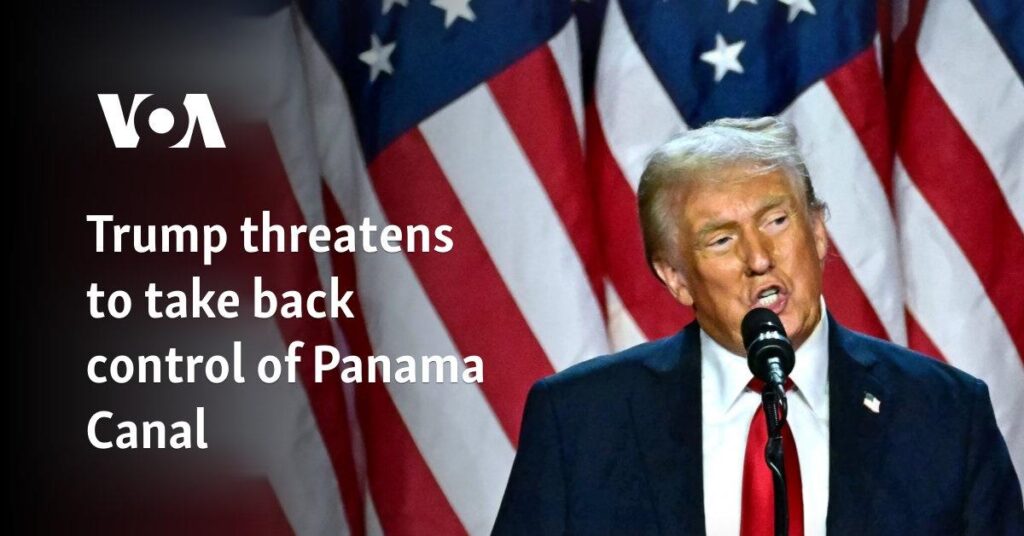In a bold and unexpected move, President Trump has reignited the debate over American control of the Panama Canal with his recent threat to take it back. This contentious issue, with both strategic military and diplomatic implications, has once again captured the world’s attention. Join us as we delve into the history, current tensions, and potential consequences of the President’s daring proposition.
Trump’s Plan to Assert US Control Over the Panama Canal: Potential Impact on Global Trade and Security
President Trump’s recent announcement to assert US control over the Panama Canal has sent shockwaves through the global community. The Panama Canal serves as a vital artery for international trade, connecting the Atlantic and Pacific Oceans. The potential impact of Trump’s bold threat could have far-reaching consequences for both global trade and security.
From a strategic military perspective, regaining control of the Panama Canal would give the US a significant advantage in terms of naval power projection. The ability to control such a crucial waterway would allow the US to exert its influence more effectively in the region and beyond. However, such a move could also strain diplomatic relations with Panama and other countries that rely on the canal for their own economic interests. The repercussions of Trump’s plan are yet to be fully realized, but one thing is certain – the world is watching closely to see how this situation unfolds.
The Historical Significance of the Panama Canal and Its Ongoing Relevance in Modern Geopolitics
With the recent bold threat from President Trump to take back the Panama Canal, the strategic military and diplomatic implications are significant. The Panama Canal has served as a crucial shortcut for international trade and military movements since its completion in 1914. Control over this vital waterway has been a point of contention and power struggle throughout history, and any attempt to seize it back could have far-reaching consequences.
The Panama Canal continues to be of great importance in modern geopolitics, shaping trade routes and military strategies. Its strategic location allows for efficient transportation between the Atlantic and Pacific Oceans, making it a valuable asset for global powers. The threat of the United States reclaiming control over the canal raises questions about sovereignty, international relations, and the balance of power in the region.
Assessing the Feasibility and Risks of Trump’s Proposal to Retake Control of the Panama Canal
Upon analyzing Trump’s proposal to retake control of the Panama Canal, it is crucial to assess the feasibility and risks associated with such a bold move. The Panama Canal has been under Panamanian control since the signing of the Torrijos-Carter Treaties in 1977, which granted full sovereignty to Panama by the year 2000. Any attempt to reverse this decision would have significant strategic, military, and diplomatic implications for the United States and its relationship with Panama and the international community.
Feasibility:
- Reversing the Torrijos-Carter Treaties would require navigating complex legal and diplomatic challenges.
- Retaking control of the Panama Canal could potentially strain relations with Panama and other countries in the region.
- The logistical and financial burden of maintaining and operating the canal would be substantial for the U.S. government.
Risks:
- Potential backlash from the international community, including sanctions and diplomatic isolation.
- Involvement in a costly and protracted legal battle that may not result in a successful outcome.
- Potential military conflicts arising from attempts to assert control over the canal by force.
Key Takeaways
the potential for President Trump to take back the Panama Canal represents a significant shift in global geopolitics. The strategic military and diplomatic implications of such a move could have far-reaching consequences for the United States and its relationship with other countries in the region. Only time will tell how this bold threat will play out on the international stage. Stay tuned for further developments as the situation continues to unfold. Thank you for reading.


